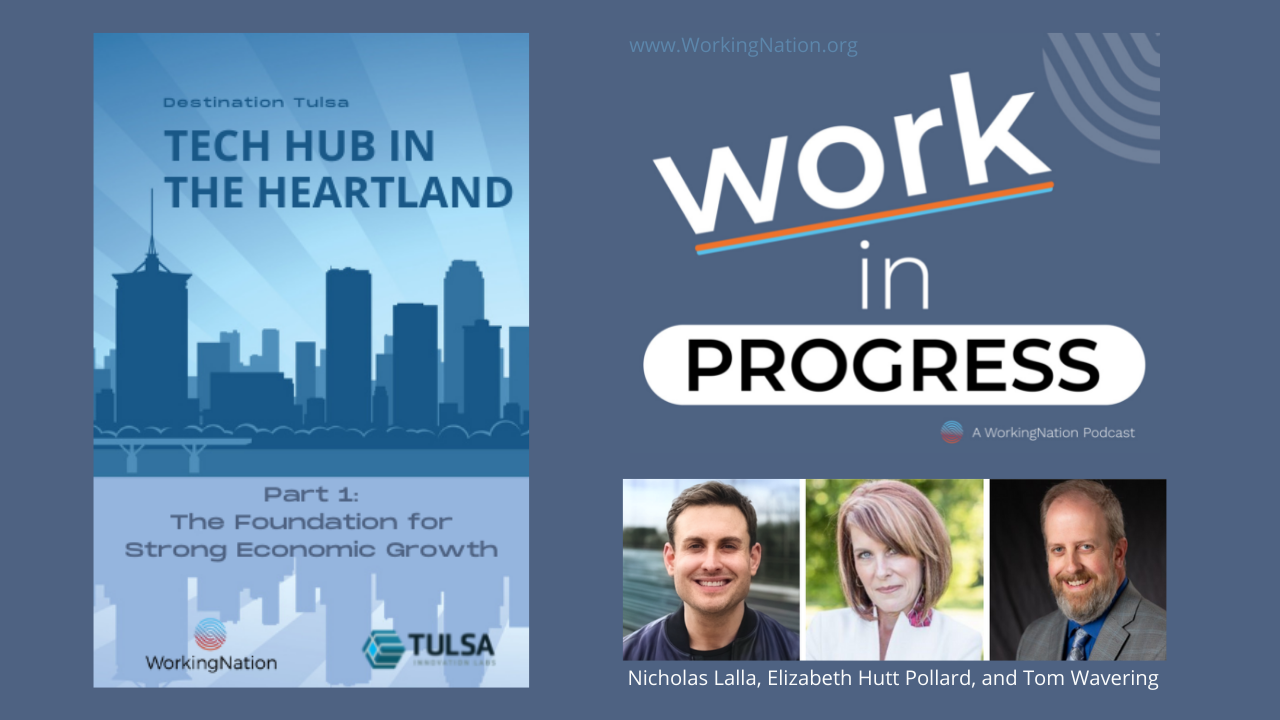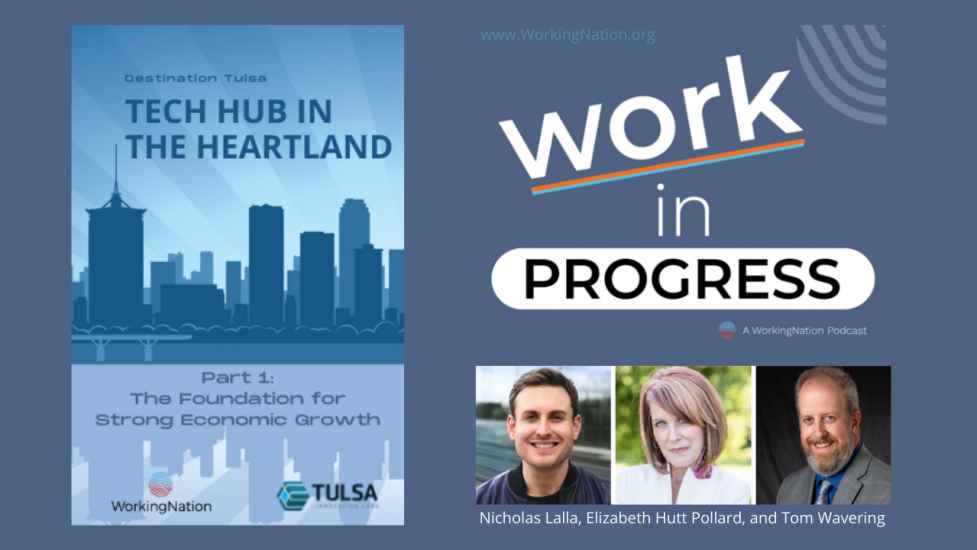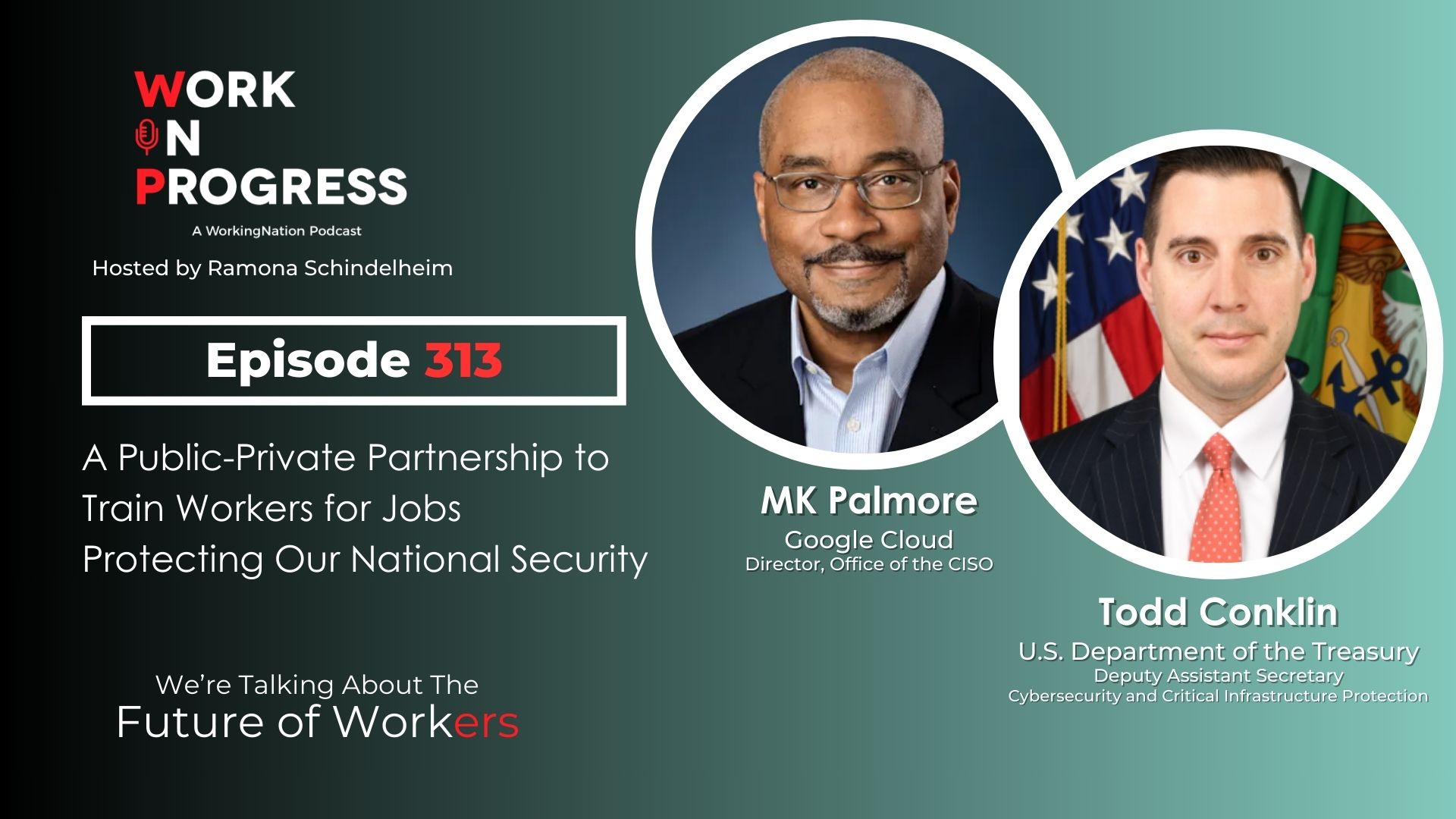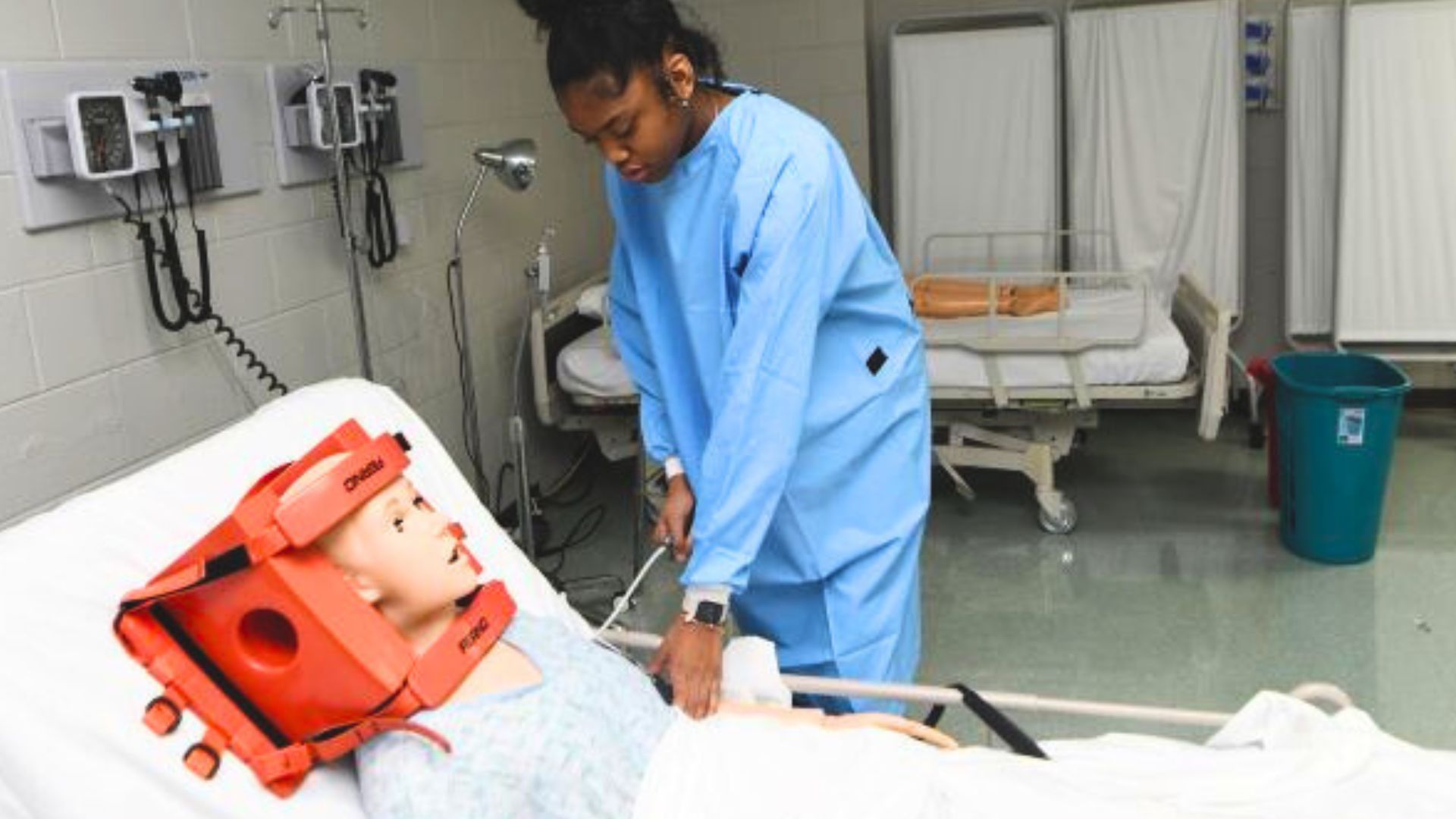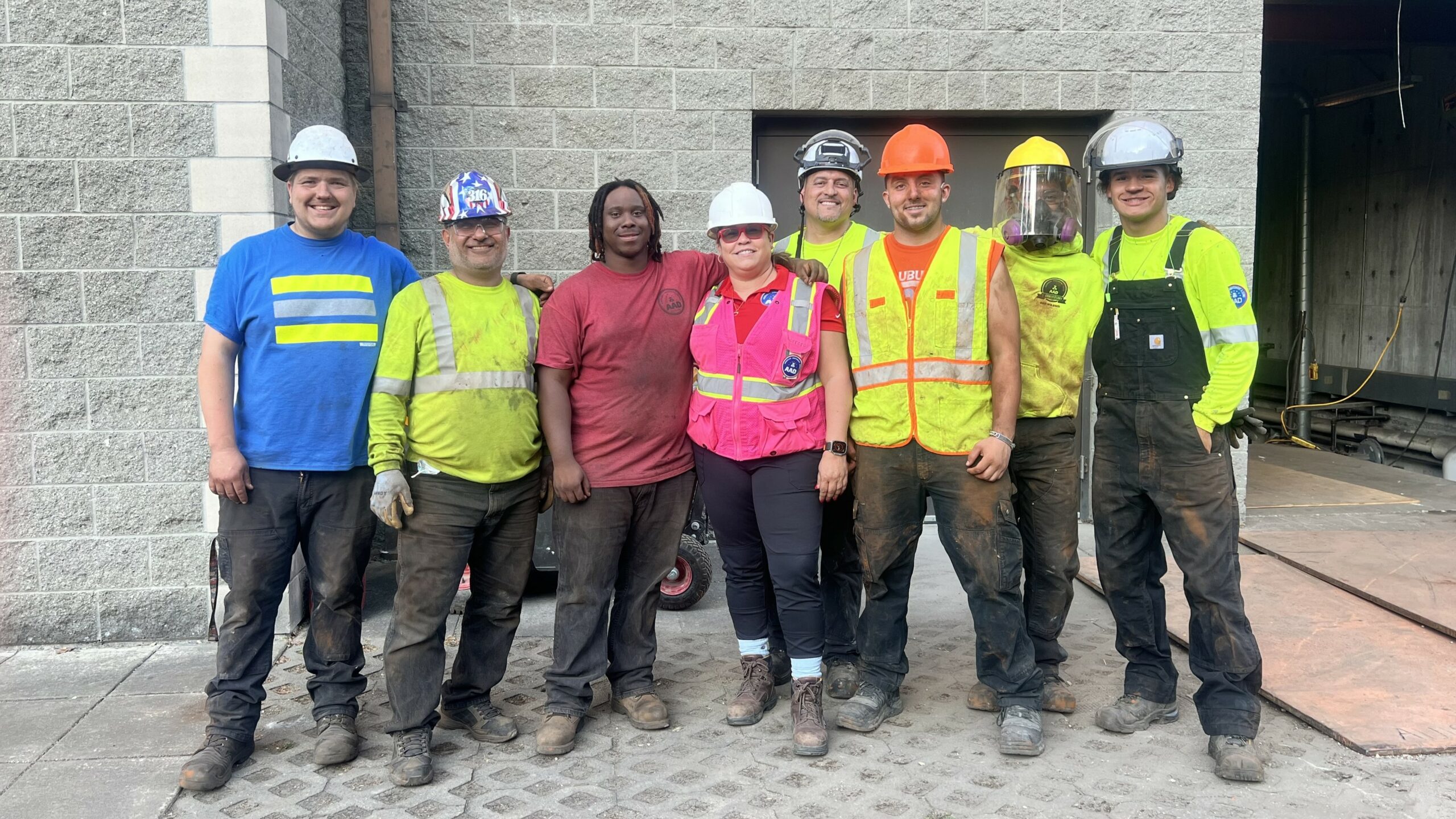Podcast: Play in new window | Download | Embed
Subscribe: Apple Podcasts | Google Podcasts | Spotify | Pandora | Youtube Music | RSS
What does it take to reinvent a community, revive a local economy, and reinvigorate a workforce? In this five-part Work in Progress podcast series – Destination Tulsa: Tech Hub in the Heartland – we look at how Tulsa, Oklahoma, is embracing in-demand tech industries to do just that. At the heart of the effort is a strong foundation of education, entrepreneurship, health care tech, energy tech, and cybersecurity.

Known as the “Oil Capital of the World” for much of the last century, Tulsa, Oklahoma, is on a mission to redefine itself as a tech hub in the heartland of America. And it is well on its way.
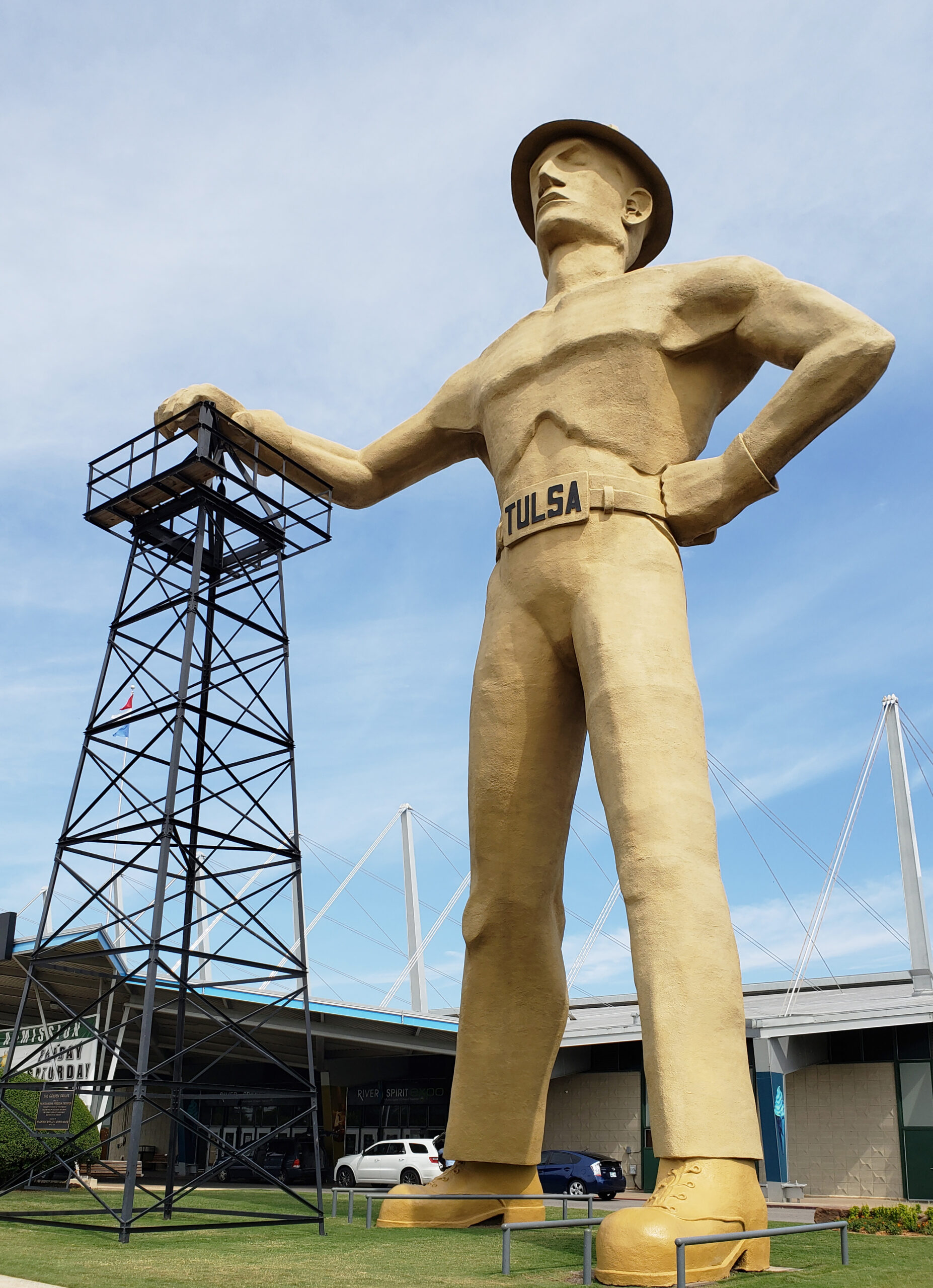
First a little history. Tulsa became a boom town in 1905 with the discovery of a vast underground pool of oil, attracting entrepreneurs by the tens of thousands to capitalize on the energy opportunities. In later decades, after the initial well was exhausted, the city reinvented itself as a supplier of pumps, drilling rigs, and oil storage. It also created a thriving aerospace manufacturing industry.
Now, the economic focus is moving to tech. Over the past five years, tech employment in the city of 400,000 has grown 25%, adding more than 12,000 jobs to the economy. A coalition of public and private partners – led by the George Kaiser Family Foundation, academics, business leaders, and innovators are working together on a plan to have Tulsa join the likes of Silicon Valley, Austin, and Seattle as a nationally-recognized center for technology innovation and a leader in several tech fields.
The foundation is in place and expanding, built on a world-class education system, an entrepreneurial spirit, and established inroads into some of the most in-demand industries in today’s economy.
Destination Tulsa: Tech Hub in the Heartland
In part one of our special five-part series, we talk to some of the key players in the tech hub movement to learn more about what it takes to make Tulsa the next economic growth hot spot.

Nicholas Lalla is the co-founder and managing director on the Tulsa Innovation Labs (TIL), the architect of the economic and workforce development plan that is designed to attract and keep tech business and talent in the city.
“We started with a scan of Tulsa’s economy, looked at all the biggest industries in town – certainly oil and gas, aerospace, manufacturing, looked at the local and regional universities and the talent and patents that they were producing, looked at emerging tech trends, and figured out what’s going to be the high growth opportunities in five, 10, 15 years,” explains Lalla.
“We spoke to 120 local community leaders to understand what the aspirations were of the city and get insight from local Tulsans about the jobs and employers and conditions in town and basically scanned the universe for opportunities that we thought Tulsa could win in,” he adds.
That research showed that Tulsa already had the building blocks in place and – with a focused effort – the city could be a tech leader in five key areas identified by TIL – virtual health care, energy tech, advanced aerial mobility (drones), data analytics, and cybersecurity. The overall effort is getting support at the state level.
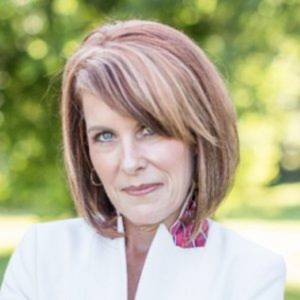
Elizabeth Hutt Pollard is Oklahoma’s Secretary of Science and Innovation. She’s fairly new to the state, coming from Silicon Valley where she helped grow a number of businesses. One of her first acts as a member of the Oklahoma cabinet was to help usher in the new Science and Innovation Strategic Plan, the goal of which is to tap into the existing talent and economic infrastructure and help it grow.
“There it begins to define how we can better work across the state government and all of our state resources and assets, whether that’s our foundations, our tech hubs, our higher ed to create an ecosystem that can really compete, thrive, and impact economic development,” says Pollard.
You can’t have a strong economy without a strong pipeline of talent and ideas. Among those assets cited by Pollard is the vast postsecondary education system in the greater Tulsa area – The University of Oklahoma, The University of Tulsa, Oklahoma State University, and Tulsa Community College – a recognized leader in workforce talent development in cybersecurity and entrepreneurship and many other fields.
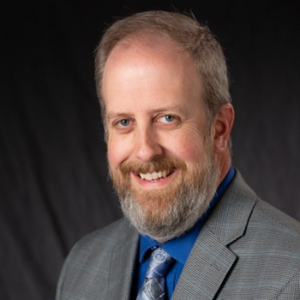
Tom Wavering is the executive director of the Tom Love Innovation Hub at The University of Oklahoma. He says the idea for the Hub was pretty straightforward – capitalize on the amazing talent, resources, and expertise at the school to improve the region and the state. Their mission is to keep the talent in Tulsa, increase tech innovation, launch more startups, and build the state’s entrepreneurial ecosystem.
“If you are an entrepreneur and you are trying to launch your business, you’re always going to encounter different types of roadblocks, whether it’s funding, whether it’s technology, whether it’s partners, whatever it might be,” Wavering tells us. “Here in Oklahoma though, historically when entrepreneurs hit those roadblocks, the default tends to be an assumption that ‘I’m hitting those roadblocks because I’m in Oklahoma,’ not necessarily just because they always happen.
He says that has lead entrepreneurs to leave and go to other places, such as Silicon Valley for help, “because they think grass is always greener over there. We really focus on what is this complete suite of programs and resources that takes someone all the way from that original idea, that original research, that original inspiration for their business, all the way through to successful funding, hiring, growing, profitable startup or social enterprise.”
Now Listen to the ‘How’
I’ve told you some of the ‘who’ and the ‘what’ behind the city-wide strategy to position Tulsa as a tech hub and a leader in the future of work. You can listen to the podcast here to learn how these public and private leaders are working to making this vision a reality. You can also find this and every episode of Work in Progress wherever you get your podcasts.
There’s four more parts to this story. Coming up in the next few weeks, we’ll explore how the city is encouraging tech talent – starting in grade school – and helping a more diverse population to train for these growing fields. We’ll also talk with several new residents who turned down opportunities in bigger cities to stake their fortunes in Tulsa. Plus, more on a growth area that has the Department of Defense calling.
Destination Tulsa: Tech Hub in the Heartland is made possible by the support of Tulsa Innovation Labs.

Episode 219: Destination Tulsa: Building a tech hub on a strong foundation of talent and ideas
Host & Executive Producer: Ramona Schindelheim, Editor-in-Chief, WorkingNation
Producer: Larry Buhl
Executive Producers: Joan Lynch and Melissa Panzer
Theme Music: Composed by Lee Rosevere and licensed under CC by 4.0
Music for Destination Tulsa series: From Bensound.com
Download the transcript for this podcast here.
You can check out all the other podcasts at this link: Work in Progress podcasts

